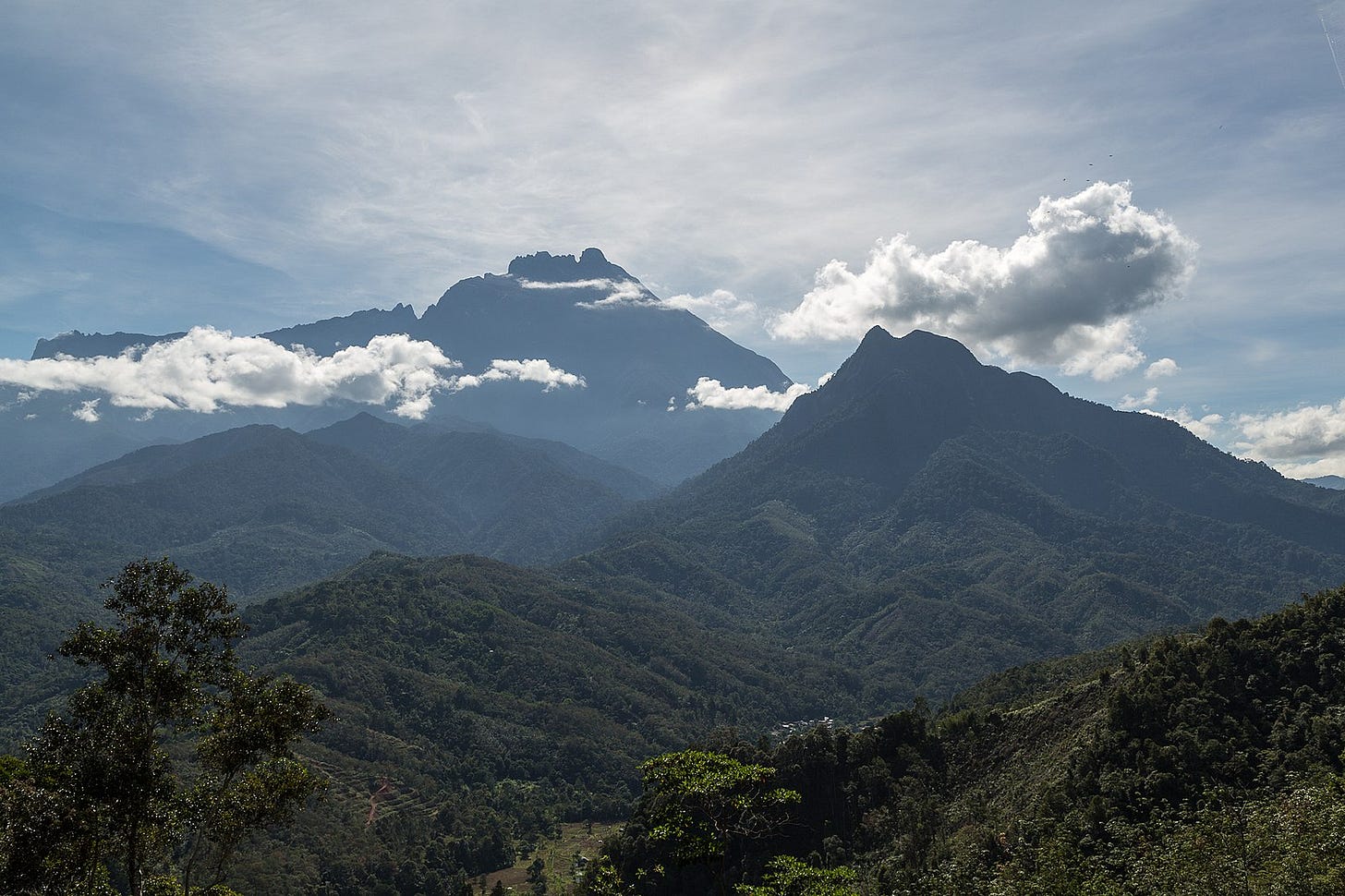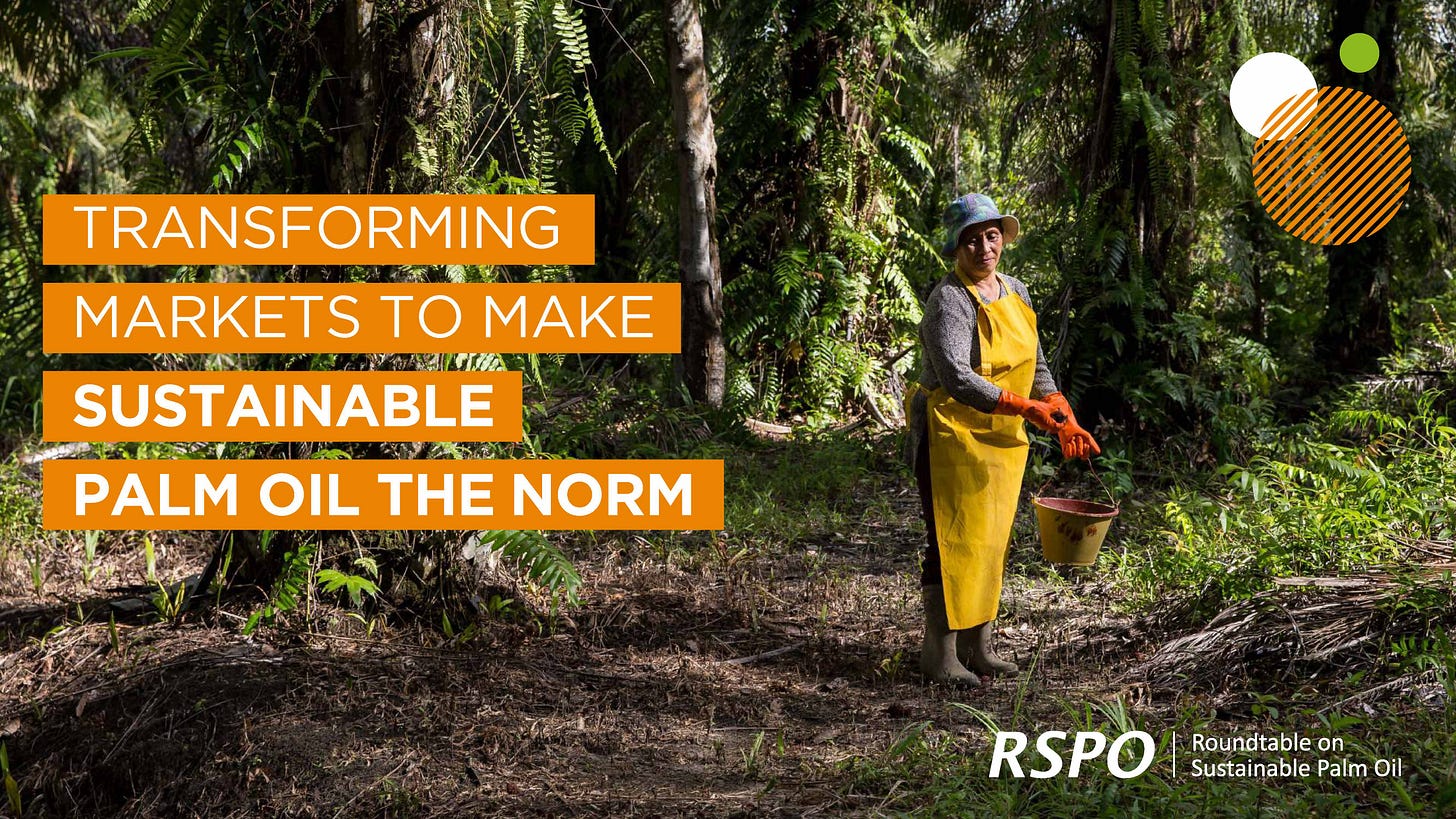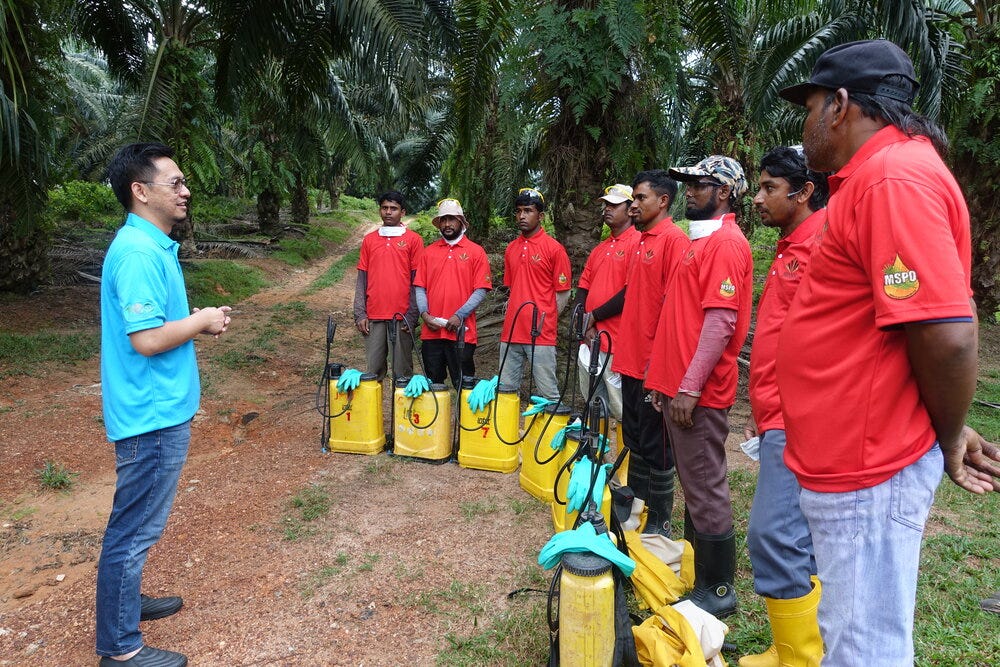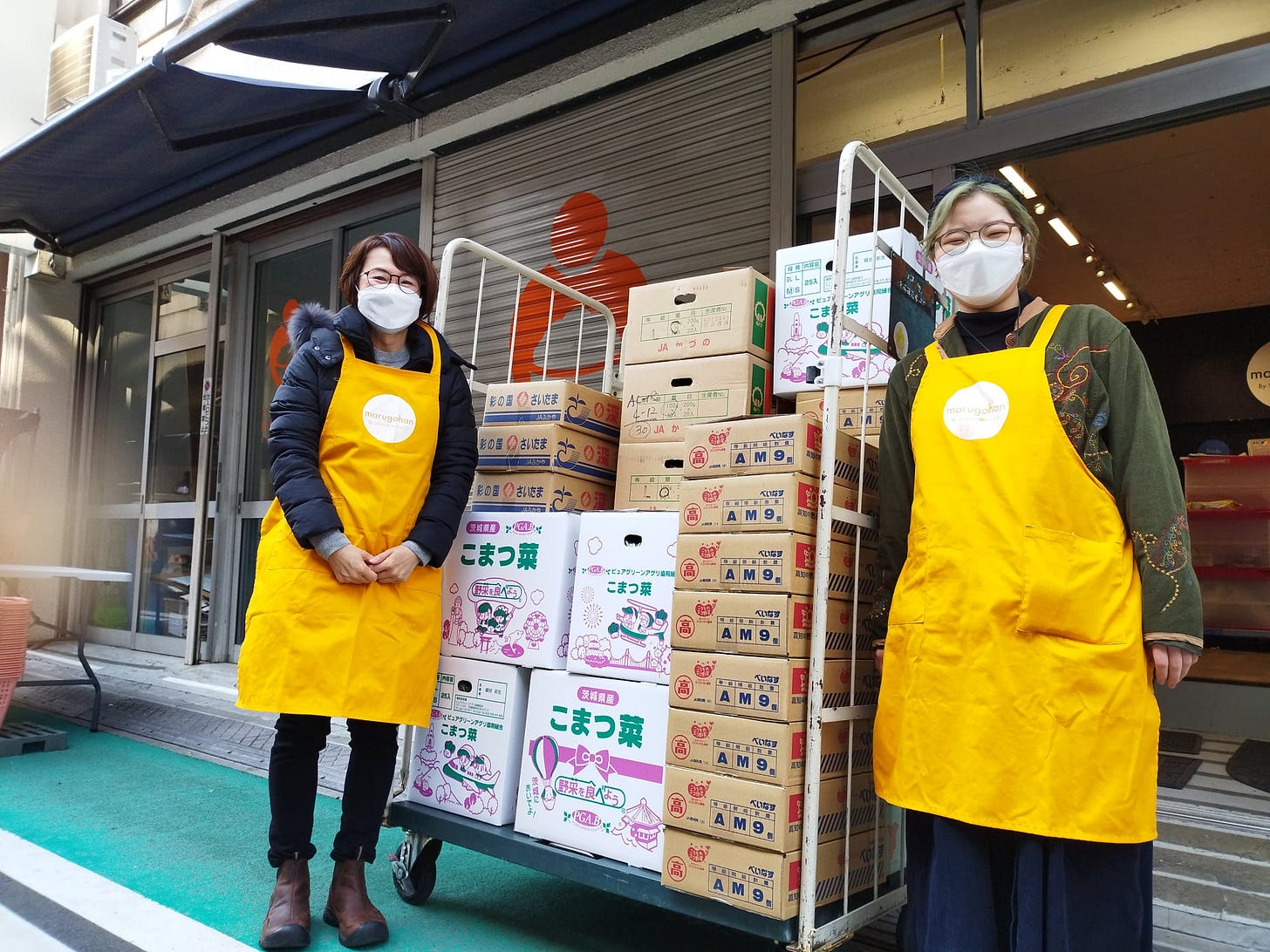Does sustainable palm oil exist?
We look beyond calls to boycott and hear about smallholders in Sabah, Borneo. Plus, five countries with top-notch approaches to food waste.
🌏 You can expect more positive climate coverage from Ours to Save over 2022, with a deeper focus on video and visuals. As always, the best way to support us is by becoming a paid subscriber. This will ensure we can keep publishing forward-thinking environmental journalism. 🌏
Sustainable palm oil production: making it happen
In Sabah, Borneo, smallholders are transitioning to sustainable palm oil production with the support of NGOs. By Li Xuan.
Palm oil is a major export commodity for Sabah. The state – located in northern Borneo – has the highest output in Malaysia, which is the world’s second-largest producer after Indonesia.
Sabah produced over four million tonnes of crude palm oil in 2020, with an estimated revenue of $3.4B. Palm oil constitutes a large chunk of the state’s GDP and most of its agricultural output. This comes as no surprise, as its total palm oil planted area exceeds 1.54M hectares, of which approximately 26% is certified by the Roundtable on Sustainable Palm Oil (RSPO).
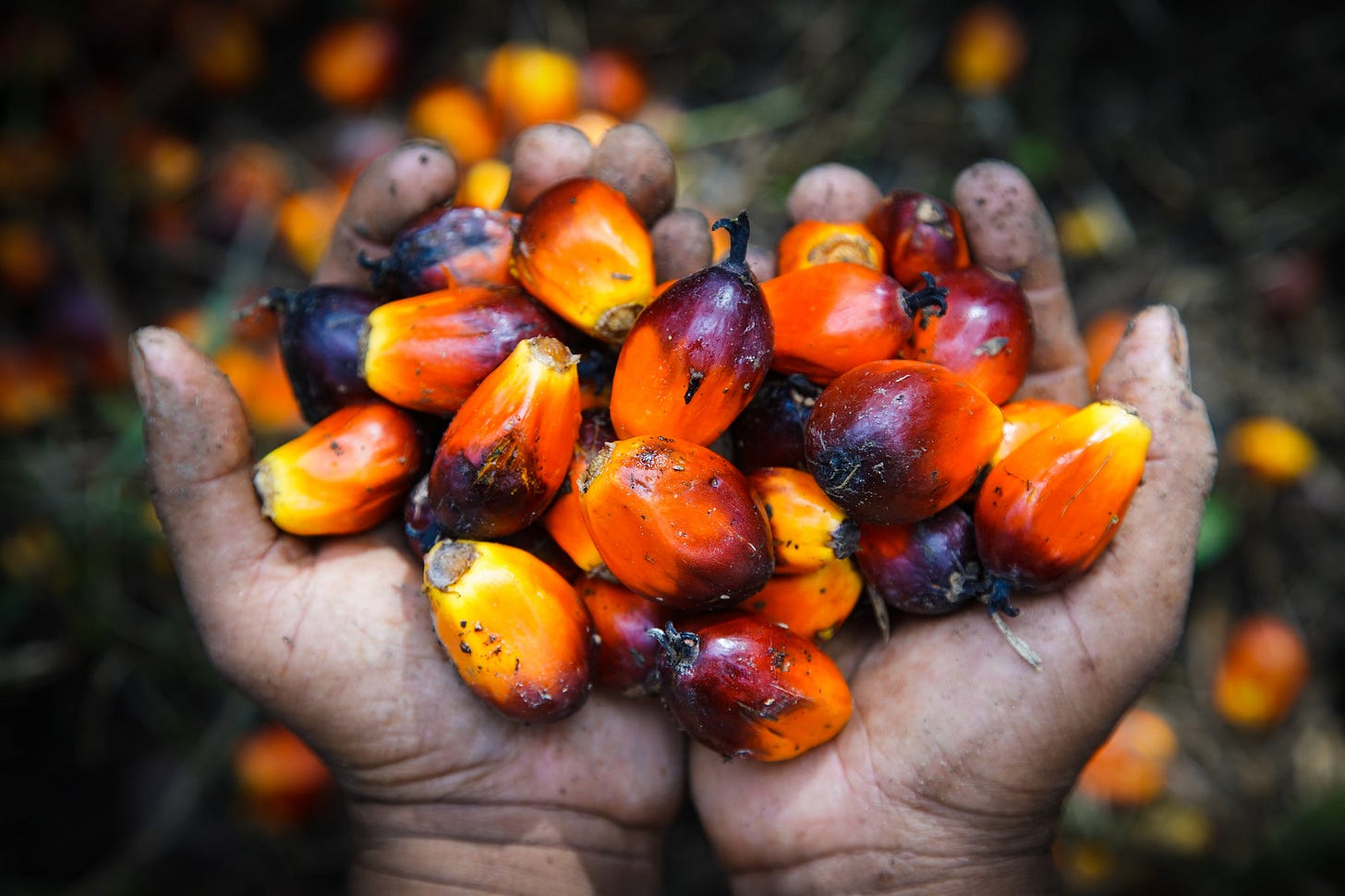
This accounts for 10% of the world’s annual production, thus contributing to extensive deforestation practices. According to Global Forest Watch, Sabah lost approximately 339,000 ha of its natural forests between 2002 to 2020.
The problem with boycotting
Despite increasing international calls to boycott the industry, indigenous peoples – who constitute a substantial portion of Sabah’s palm oil smallholders – have been ignored. Excluding these voices from such drastic decisions is counter-productive and only serves to alienate communities.
Palm oil is an important source of income for an estimated 53,000 smallholders state-wide, a figure which led the state government to commit to a 10-year policy initiative back in 2015.
Through JCSPO – The Jurisdictional Certification of Sustainable Palm Oil – it pledged to produce 100% RSPO certified palm oil. This incentivised companies with existing initiatives to align sustainability and development targets across Sabah.
The industry’s answer has been to formulate the RSPO, a multi-stakeholder body fostering collaboration between industry and the WWF.
The RSPO aims to improve corporate responsibility whilst also pursuing greater legitimisation of continued expansion.
The RSPO aims to accomplish zero-loss of High Conservation Value and High Carbon Stock forests within Sabah’s entire palm oil production, facilitating zero-conflict environments. They are also working to improve smallholder sustainability and empower local livelihoods by 2025. To date, about 26% of palm oil produced in Sabah is RSPO-certified.
Towards sustainable palm oil
Sophia Lim, Executive Director and Chief Executive Officer of WWF-Malaysia, sees this as:
“a crucial step in positioning Sabah and laying the foundation for the state as the global leader in sustainable palm oil.”
Continued pressure by social justice NGOs has guaranteed that RSPO standards are consistent with international human rights laws, whilst companies are independently audited by accredited certification bodies.
Through training programmes and published guidance, the RSPO has affirmed the rights of indigenous peoples to their customary lands, and no lands can be taken from their local communities without their free, prior, and informed consent.
Its Certification Protocol adoption mandates companies with certified mills and estates to warrant that associated scheme smallholders are also certified within three years.
Moreover, RSPO members must endorse a Code of Conduct, which requires them to uphold these standards while a grievance mechanism provides recourse for those who believe RSPO members are violating the code and a dispute resolution facility is also under development.
To enhance greater smallholder inclusivity, the RSPO has promoted support through a specialised fund, and is creating a separate Independent Smallholder Standard and certification framework that examines the reality of their needs.
The next step: certifications
The initiative was also strengthened through the mandatory Malaysian Sustainable Palm Oil (MSPO) national certification scheme in December 2019, as it engaged producers yet to be aware of these sustainability standards and provided a platform for dialogue and assistance towards a common goal.
Increasing yields may increase smallholder’s incomes temporarily, but to improve their livelihoods long-term, the industry must link them to certification schemes. These will enable them to recover the sustainability premium, whilst securing steady access to high-quality seedlings, fertiliser, farming advice and financial capital.
Reza Azmi of Wild Asia acknowledges that some agricultural methods may sound foreign to industrial-scale plantations. These include low-input, low output farming methods – that reduce costs while increasing ground cover – and composting which improves soil fertility and increases the volume of groundwater available to crops.
Furthermore, increasing crop diversity could improve soil health and yields, while also providing alternative income sources when smallholders face cash shortages during the initial production gap after replanting.
In implementing its ‘No Deforestation, No Peat, No Exploitation’ commitments across supply chains, several companies have been investing in smallholder capacity building programmes.
Since 2016, a smallholder project led by NGO Forever Sabah in the districts of Tongod, Telupid, Beluran and Kinabatangan identified smallholder challenges in achieving RSPO and MSPO certification, specifically: poor yields, low technical expertise, and land tenure insecurity.
Similarly, in the Beluran, Kinabatangan and Lahad Datu districts, Earthworm Foundation - with the support of Reckitt, Nestle, ADM Cares, Givaudan, Groupe Rocher and IJM Plantations - collaborated closely with the local government, mills, and producers.
Collectively, they encouraged 200 smallholders to move towards sustainable practices which have improved livelihoods and promoted entrepreneurship.
Li Xuan is an MSc Environment and Development student at the LSE, researching the palm oil industry within her home state, Sabah.
Five ways to solve the food waste crisis
Take a look at these global solutions, featuring everything from animal feed to artificial intelligence. By Al Howard.
Alongside the mounting tide of plastic, food waste has become a pressing issue worldwide. A 2018 report by Boston Consulting Group revealed that 1.6B tonnes of food – roughly the volume of Manhattan - goes to waste each year, a figure which is expected to rise to 2.1B by 2030 unless urgent action is taken.
Food production is already a leading cause of climate change, accounting for a quarter of the world’s greenhouse gas emissions, and uneaten food creates emissions of its own when chucked away.

It’s undeniable that the introduction of pre-packaged and mass-produced meals to our tables has contributed to food waste; today we have more choice than ever, and the modern consumer is faced with an endless barrage of advertisements.
But it’s not all bad news: despite its dirty reputation, mass production has been one of the greatest success stories of the modern age, liberating many of us – particularly women – from hours of tedious manual labour and providing millions with a higher quality of life. Meanwhile, improvements in technology have equipped us with better methods of preserving food and tighter supply chains, to reduce wastage during manufacturing and distribution.
So, knowing all this, how can we fix the food industry? Ours to Save has scoured the globe for countries with the most innovative solutions.
Japan
Since Japan’s stringent Food Waste Law was imposed in 2001, businesses have been held accountable for wastage through fines and penalties. Plus, a 2007 amendment has seen leftover nutrients channeled into animal feed and fertiliser for crops in a process known as a ‘recycling loop’.
The recycling law is supported by Second Harvest, a food bank founded in 2002 which redistributes surplus food from supermarkets, farmers and individuals to people in need: primarily orphanages, women’s shelters and the homeless. Following the catastrophic 2011 earthquake and tsunami, they also supplied 1300 food packages to communities in Tohoku.
Japan continues to work towards its self-sufficiency goals through adopting AI systems that analyse sales data and predict weather patterns. One such platform is DataRobot, developed in the US, which is already being employed by supermarkets and retailers to anticipate consumer trends.
South Korea
South Korea have disincentivised food waste by 10% in four years by taxing its citizens in a ‘pay for your rubbish’ scheme.
France
It may come as a surprise that France produces the lowest quantity of food waste worldwide. This is largely due to the country’s ban on food waste in supermarkets which, since 2016, have been legally obligated to donate leftover produce to food banks. Under France’s severe system, the destruction of in-date food is met with crippling fines and even legal action.
Norway
Norway’s government and largest food companies are working together to reduce food waste 50% by 2030. Methods include discounting food that is approaching its expiry date, whilst charities and apps are also emerging to take advantage of surplus food from supermarkets.
Denmark
Denmark has successfully reduced food waste by 25% in five years through campaigns by NGOs which are supported by the Danish government. One of the most successful was the Stop Food Waste campaign which has made a lasting impact on consumer habits. The campaign worked with schools to “give students new knowledge about food waste and at the same time give rise to positive involvement and possible behaviour change in families with children.”
Back in 2016, Denmark became the guinea pig for the Too Good to Go app, which has since gained traction across Europe. The app allows people to rescue £3-5 “magic bags” of leftovers from supermarkets and restaurants, proving sustainable meals at a low cost. You can download it here.
The bottom line
A unified global effort to counter food waste has the untapped potential to reconcile the issues of wastage with food poverty and starvation, which currently afflict one in nine people worldwide.
However, as emphasised by the BCG report, this requires “commitment from and collaboration among numerous players”, namely governments, international bodies (such as the World Trade Organisation) and consumers themselves.




